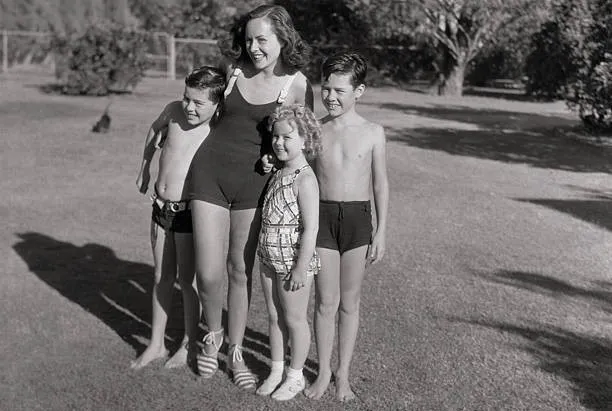The year was 1968, and Elvis Presley, the once-reigning King of Rock 'n' Roll, had lost some of his musical luster. His career, often intertwined with Hollywood and a string of lightweight musical films, had left many questioning whether the fire of his early years still burned within him. Then came the television event that would revitalize his career and reassert his status as a musical force to be reckoned with—the Elvis Presley '68 Comeback Special. This landmark moment in the history of popular music is still celebrated as a turning point in Elvis's career and a defining moment for rock 'n' roll. This article explores the significance, preparation, performance, and impact of Elvis's '68 Comeback Special, which showcased the King's triumphant return to his rock 'n' roll roots.

The Significance of the '68 Comeback Special

By the late 1960s, Elvis Presley's career had reached a crossroads. His popularity had waned, and he faced fierce competition from emerging acts like The Beatles, The Rolling Stones, and Bob Dylan. The music landscape had shifted drastically, leaving Elvis to ponder his place in a changing world.

The '68 Comeback Special was conceived as a response to this crisis of identity. It aimed to rekindle the flame that had ignited the rock 'n' roll revolution in the 1950s and remind the world of Elvis's unparalleled talent. The special was a strategic move, a chance to recapture the imagination of the public and to reaffirm Elvis as the original rock 'n' roll icon. In retrospect, it did far more than that—it solidified his status as a legend and left an indelible mark on the history of televised music.
Preparation and Creative Direction

The preparation for the '68 Comeback Special was a meticulous process, spearheaded by the special's producer, Bob Finkel. The team took inspiration from the "sit-down" jam sessions of Elvis and his band members and sought to capture the essence of rock 'n' roll spontaneity and raw energy. Director Steve Binder was brought in to realize this vision.
The special was divided into two segments. The first featured Elvis in a more informal setting, sitting on a small stage surrounded by a small, enthusiastic live audience. This setting allowed him to interact with his band members, often referred to as the TCB (Taking Care of Business) band, and reminisce about his early career. It was in this segment that Elvis reclaimed his rock 'n' roll roots, performing classics like "Heartbreak Hotel" and "One Night."

The second segment showcased a sleek, leather-clad Elvis, performing solo on a larger stage. This portion was characterized by its electrifying energy and charisma, with Elvis delivering unforgettable renditions of songs like "Jailhouse Rock" and "Hound Dog."
The Comeback Performance

The '68 Comeback Special was filmed over several days in June 1968, but it was the night of June 27 that would go down in history. Elvis's performance was nothing short of a revelation. Clad in a tight black leather suit, he exuded a confidence and charisma that had not been seen in years. His voice, still as powerful and emotive as ever, resonated through the venue and into the living rooms of millions of viewers.
The special's opening song, "Trouble," set the tone for what would follow. Elvis was back, and he was determined to make a statement. His engagement with the audience was palpable, and the intimacy of the small stage created a connection that transcended the television screen.
Throughout the performance, Elvis alternated between rocking numbers and soulful ballads, showcasing the remarkable range of his talent. He poured his heart and soul into songs like "If I Can Dream," a powerful anthem with a message of hope and unity that resonated deeply with the tumultuous times of the late 1960s.
A defining moment of the special was Elvis's emotional rendition of "Are You Lonesome Tonight?" His delivery was heartfelt and sincere, revealing the vulnerability and depth that lay beneath the rock 'n' roll façade.
As the special drew to a close, Elvis's encore performance of "If I Can Dream" left a lasting impact. It was a powerful and inspirational call to a divided nation, transcending the boundaries of entertainment to become a poignant commentary on the social and political issues of the time.
Impact and Legacy

The '68 Comeback Special was an immediate and resounding success. It drew over 42% of the television audience, making it one of the highest-rated programs of the year. The critical and popular acclaim it received revitalized Elvis's career and served as a launching pad for his live performances in Las Vegas in the following years.
Perhaps more importantly, the special rekindled the public's love for rock 'n' roll and repositioned Elvis as a pioneer and symbol of the genre. It ignited a nostalgia for the early days of rock music and inspired a new generation of musicians who sought to capture the raw energy and authenticity of the King's '68 comeback.

Elvis's triumphant return marked a turning point in the history of rock 'n' roll. His influence on the rock genre, which he helped create, cannot be overstated. The special's success reestablished him as a cultural icon, and he continued to produce hit records and perform to enthusiastic audiences until his untimely death in 1977.
The '68 Comeback Special also had a significant impact on the way television was used as a platform for musical expression. It set a standard for future televised music events and remains a benchmark for artists and producers seeking to connect with their audience on an emotional level.
Conclusion

The Elvis Presley '68 Comeback Special remains a touchstone for fans and music enthusiasts alike. It was not just a television program; it was a seismic event that revitalized a legendary career and revitalized the genre of rock 'n' roll. Elvis's electrifying performance, creative direction, and the intimate setting made it an unforgettable moment in music history.
This article has explored the significance, preparation, performance, and impact of the '68 Comeback Special, shedding light on the pivotal role it played in the trajectory of Elvis's career and in the evolution of televised music. It was a powerful reminder of Elvis's enduring talent and a testament to the timeless appeal of rock 'n' roll, leaving an indelible legacy that continues to resonate with fans and musicians to this day. The King of Rock 'n' Roll had truly returned, and his reign was as powerful as ever.


